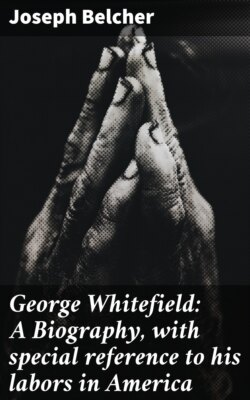Читать книгу George Whitefield: A Biography, with special reference to his labors in America - Belcher Joseph - Страница 11
На сайте Литреса книга снята с продажи.
OPEN-AIR PREACHING IN ENGLAND AND WALES—ERECTION OF THE TABERNACLE IN LONDON.
1738–1739.
ОглавлениеTable of Contents
Under the circumstances we have related in our last chapter, Whitefield paid another visit to Bristol, and soon found that he had to meet with new and very unexpected opposition. When he arrived in the city, the chancellor of the diocese, while he did not approve of what he considered his irregular conduct, told him that he would not prohibit any clergyman from lending him his church; but in a few days afterwards he sent for the evangelist, and announced his entire opposition to his movements. Strangely enough, he now asked Whitefield by what authority he preached in the diocese of Bristol without a license. The reply of the intrepid minister was, that he supposed such a custom had become obsolete, and asked the chancellor in his turn, "And pray, sir, why did you not ask the clergyman who preached for you last Thursday this question?" The chancellor then read to him the canons which forbid any clergyman from preaching in a private house; to which Whitefield replied, that he did not suppose these canons referred to professed ministers of the church of England; and when the chancellor told him he was mistaken, he reminded his superior, "There is also a canon, sir, forbidding all clergymen to frequent taverns and play at cards; why is not that put in execution?" And he then added, that notwithstanding any canons to the contrary, he could not but speak the things which he knew, and that he was resolved to proceed as usual. His answer was written down, and the chancellor closed the interview with the words, "I am resolved, sir, if you preach or expound anywhere in this diocese till you have a license, I will first suspend, and then excommunicate you." The crisis was now come; the Rubicon had been passed, and the inquiry might well be made, "What will Whitefield now do?"
Already have we seen that he had earnestly desired, in London, to preach in the open air, for want of room in the churches, and indeed also from the opposition of the clergy, which had begun so strongly to manifest itself; and during this journey to Bristol, he found it necessary to preach in the open air or not at all. As this event was of vast importance in its results, both in his own history and that of Mr. Wesley, who also began to preach on the same spot within two months after Whitefield had opened the way, we must stay a while to narrate the facts.
